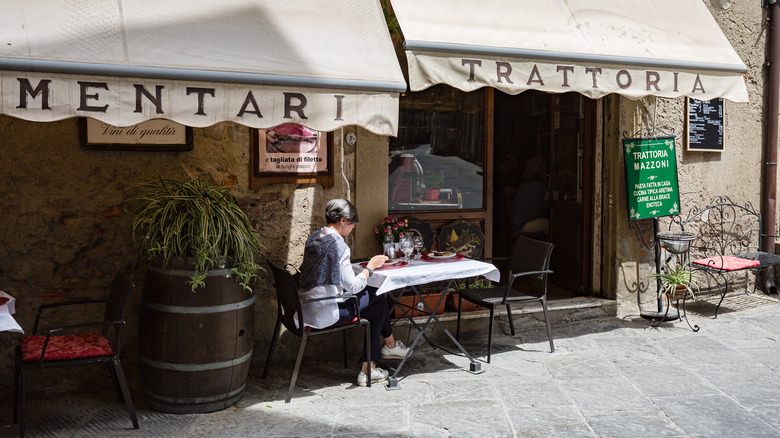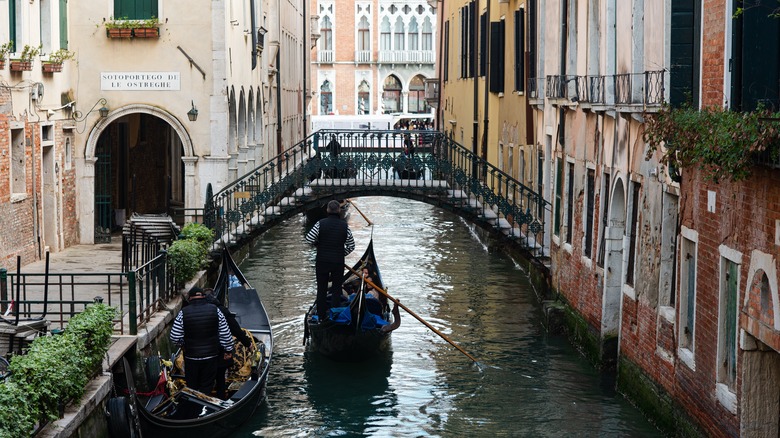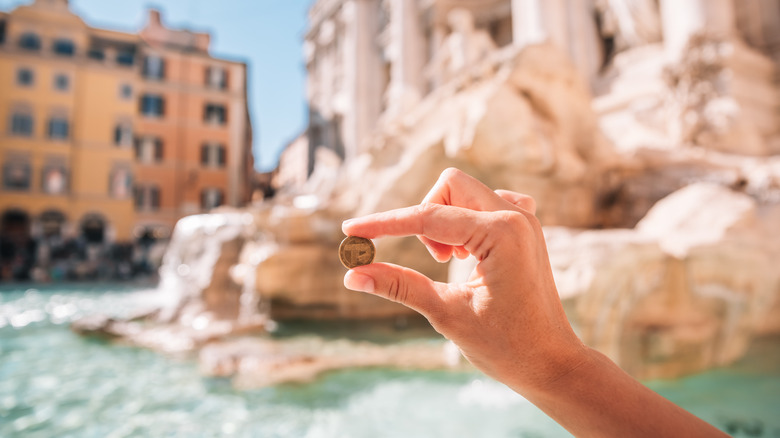Here's Why It Really Pays To Understand How Tipping Works In Italy
Tipping is such a standard part of American culture that it can be tricky to understand the expectations of other cultures while traveling. Some countries include service charges in the bill so that tipping isn't required, whereas others might have nuances regarding how much, who, and when to tip. When it comes to tipping in Europe, it's not the norm the way it is in the U.S. (where some workers get paid less than minimum wage and rely on tips), but that doesn't mean a gratuity isn't appreciated in some circumstances. Islands asked Katy Clarke, founder of Untold Italy, for some advice on tipping in Italy, and she explained why it really pays to understand the tipping culture (or lack of one) while visiting this beautiful country.
Clarke says that tipping isn't really a thing in Italian culture aside from the occasional rounding up or tipping for exceptional service because you genuinely want to. But she cautions travelers to watch out for tourist areas where you might get singled out if they think you're from the U.S. "In some of the major tourist areas, some businesses actively chase tips from tourists if they think they are American," Clarke explains. "This is not consistent with Italian culture, where tipping large amounts or asking for tips is simply not done."
When should you tip in Italy?
According to Katy Clarke, you're unlikely to run into a scenario where you're outright asked for a tip in Italy. So you can relax your worries about awkward situations where you get an iPad tip request blatantly presented to you while signing your payment under watchful eyes, something that's becoming more commonplace in the U.S. However, that doesn't mean that Italians don't know that Americans find tipping to be customary and may try to use that to their advantage.
Clarke tells us that there's no need to tip in most situations, as services are usually included in the price of things like taxi rides and hotel stays. In particular, check your restaurant bill for a charge called "servizio" or "coperto," which covers the service you received. That said, unlike in some countries where tipping is considered rude, no one is going to be mad at you for leaving a tip, especially if it's to thank them for exceptional service. If your taxi driver hauls your heavy luggage up a winding staircase or your restaurant server goes above and beyond, go ahead and give them a little something extra to show your appreciation. Just remember to make sure your taxi in Italy is legit so you avoid getting scammed.
How much should you tip in Italy?
Rounding up the bill to the nearest €10 or leaving a few euros per diner is the tipping style usually seen in Italian restaurants, Katy Clarke tells Islands. She also points out that you can give a few euros to hotel staff or taxi drivers if you'd like to say thanks. But definitely carry some extra cash around if you're booking tour experiences. "For tour guides, €5-10 per person is a general rule of thumb, and for full-day experiences and drivers, you could give €20," explains Clarke.
Other experts suggest that for services like beauty treatments, a 10% tip is certainly welcome (but not necessary) in the case of exceptional service. While tipping for outstanding service is likely to be well-received, overtipping might make you stand out, as it's just not customary in Italian culture. In most cases, 10% will be sufficient, so there's no need to hold yourself to the U.S. standard of 20%. That's good to hear if you happen to be exploring Italy on a tight budget. It's also a good idea to carry around change and cash for when you do tip, as it may not always be an option to leave extra if you pay with a card.
At the end of the day, deciding to tip is a personal choice. So, while it might not be the norm in Italy, you are welcome to leave extra if you feel it's warranted or you just feel like tipping. But keep in mind that while you might expect dirty looks for failing to tip in a U.S. restaurant or salon, it's not usually expected in Italy, and the tips people do leave are typically less than what you'd see in American culture.


